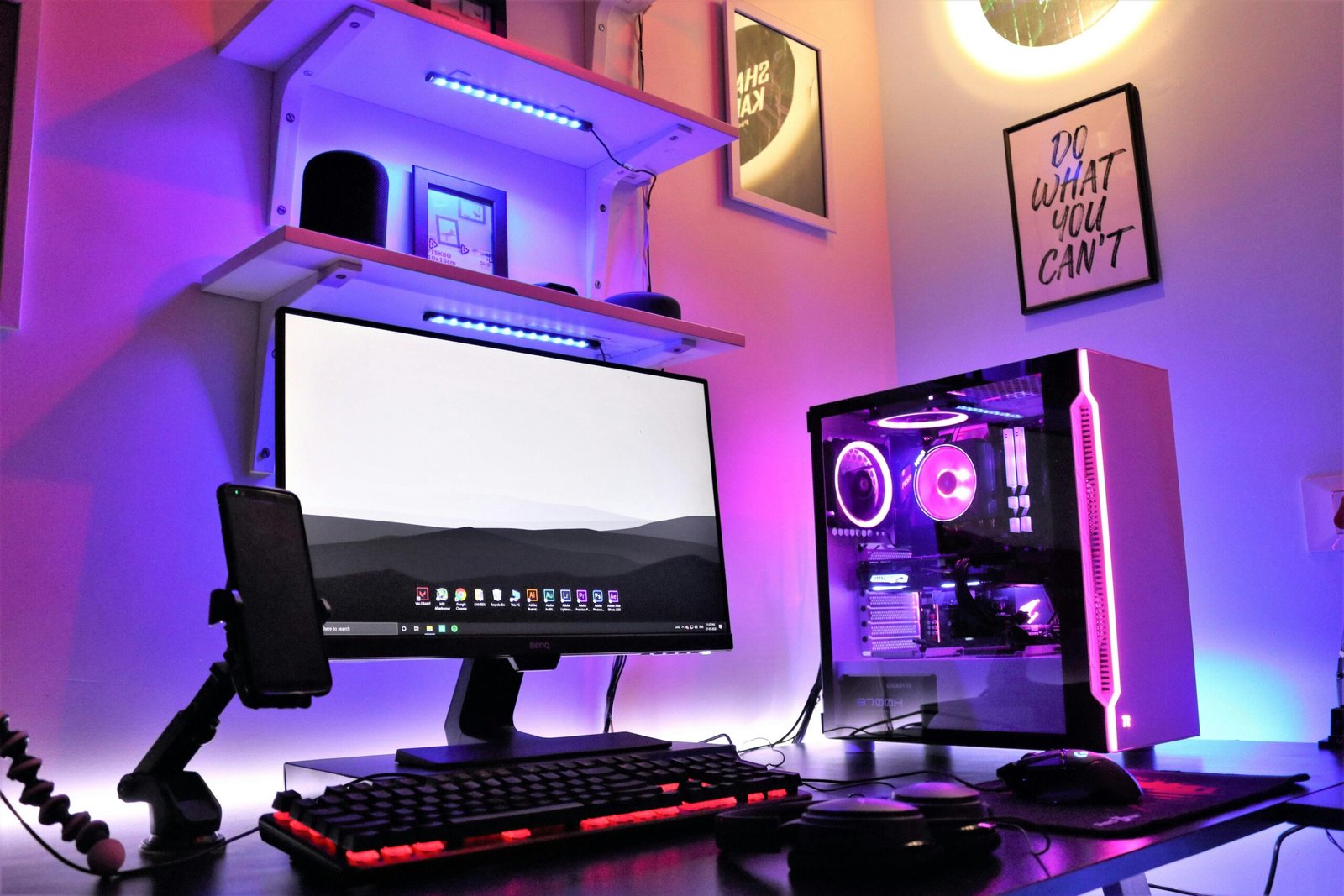Whether you go for a prebuilt gaming PC or one you fabricated yourself, a gaming PC is a costly speculation. Dealing with your gaming rig implies that it stays at its best degree of execution for a significant stretch. You’ll have the option to partake in the experience of PC gaming with most extreme return in any event, while having one of the most amazing gaming laptops or one on a careful spending plan for a modest gaming PC. Just like the Xbox Series X is known for its robust performance and longevity, ensuring proper care for your gaming PC will help maintain its peak condition. This is the way to keep your gaming PC in top condition.
1. Keep It Clean
Dust is the silent killer of gaming PCs. When dust builds up, it clogs fans, reduces airflow, and causes your system to overheat. To prevent this:
- Regular Cleaning: Use compressed air to clean out the fans, vents, and other components every 3 to 6 months.
- Filters: If your case contains dust filters, clean them regularly. These catch dust before it penetrates into your system
- Location Counts: Put your gaming PC on a desk or elevated surface. It then reduces your exposure to dust and debris.
Even the best prebuilt gaming PCs need routine cleaning to stay efficient.
2. Monitor Temperatures
This tends to throttle over time and overheat, hence damaging the computer hardware. Always monitor your temperature using software tools like HWMonitor or MSI Afterburner, and if high temperatures are normal:
- Re-apply Thermal Paste: The paste on the CPU dries off slowly, reducing efficiency. Replacing it can get that cooling to what it should be.
- Upgrade Cooling: Upgrade to superior air or liquid cooling solutions. For high-performance rigs, it is best for the best gaming PCs.
- Improve Airflow: Ensure that your case has adequate airflow by managing cables properly and using high-quality fans.
3. Update Drivers and Software
Outdated drivers can result in performance problems or compatibility issues. Regularly update:
- Graphics Card Drivers: These are essential for the best gaming performance. Companies like NVIDIA and AMD often update drivers specifically for new game titles.
- Operating System: Update your OS to enjoy security and performance improvements.
- Firmware and BIOS: Sometimes, check for updates on your motherboard’s firmware or BIOS for better stability and compatibility.
Even a cheap gaming pc can be greatly improved by updated software.
4. Optimize Storage
Full storage reduces the speed on your gaming PCs, thus contributing to long-load times and suboptimal system performance. It is always optimal to maintain storage:
- Use SSD: Upgrade to an SSD if a PC doesn’t have it to improve boot-up times and gameplay loading.
- Use HDD: Always defragment its traditional hard disks for optimal performance in read or write.
- Clear Junk Files: Clear out the unused files using the CCleaner.
Uninstall Unused Programs: Eliminate all unnecessary software and games to recover hard drive space.
5. Malware Protection
Malware and viruses can make your PC slow down and steal away your data. Protect your gaming PC by following these:
- Installation of Antivirus Software: Pick a reliable antivirus software and install it. End.
- Avoiding Suspicious Downloads: Download games and software only from trusted sources.
- Using a Firewall: A firewall can block unauthorized access to your system.
Even the best prebuilt gaming PCs need robust security measures to stay safe.
6. Manage Power Settings
Proper power management can enhance both performance and longevity. Here’s what you can do:
- Use a Surge Protector: Protect your PC from electrical surges that can damage components.
- Enable High-Performance Mode: On Windows, switch your power plan to “High Performance” for better gaming performance.
- UPS: A UPS can prevent sudden shutdowns during power outages, which can harm your system.
7. Upgrade Hardware When Necessary
Even the best gaming PC will eventually require upgrades to keep up with newer games and technology. Focus on the following components:
- Graphics Card: Upgrading your GPU can significantly improve gaming performance.
- RAM: Adding RAM will help to multitask, run modern games, and boost performance.
- Storage: If there is not enough room, add another SSD or hard drive.
- Cooling System: Improved cooling enables you to stress your hardware with less overheating.
For cheap gaming pc, gradual upgrades transform your budget rig into a beast of performance.
8. Backup Your Data
Data loss can happen due to hardware failure or malware. You will never lose anything critical if you back up your important files regularly. Use external drives or cloud storage solutions for backups.
9. Keep Cables and Connections Organized
Messy cables can cause a blockage in airflow and make maintenance a pain. Here’s how to manage them:
- Cable Management: Use zip ties or Velcro straps to organize cables inside and outside the case.
- Check Connections: Periodically check all your connections to make sure everything is plugged in tightly.
10. Organize Your Software and Games
A messy desktop or library will make it hard to find what you need. To make your usability better, organize your games and software.
- Game Launchers: Use the Steam or Epic Games Store as your game hub.
- Categorize Files: Use folders to group different file and program types.
Conclusion
It doesn’t need to be no joking matter to keep up with your gaming PC. Whether you own the best prebuilt gaming PC or the least expensive gaming PC, these tips can assist with guaranteeing that your framework stays with everything looking good into the indefinite future. Ordinary cleaning, programming refreshes, equipment overhauls, and appropriate association are fundamental for ideal execution. By dealing with your gaming PC, you’ll appreciate smoother ongoing interaction and a more solid framework, making each snapshot of your PC gaming experience beneficial.
